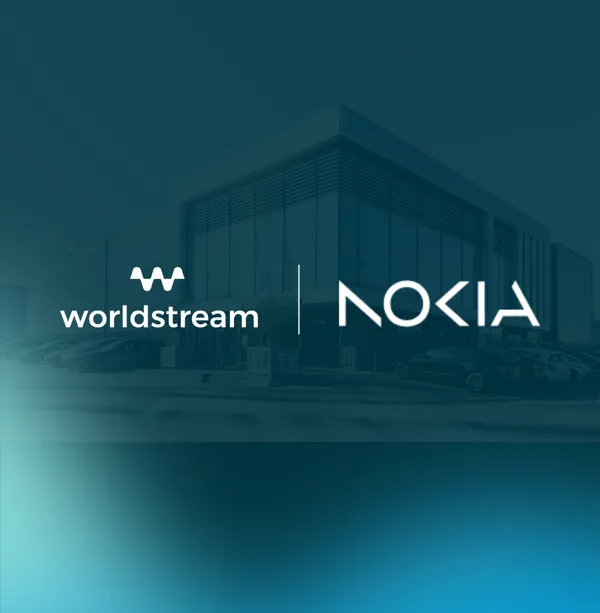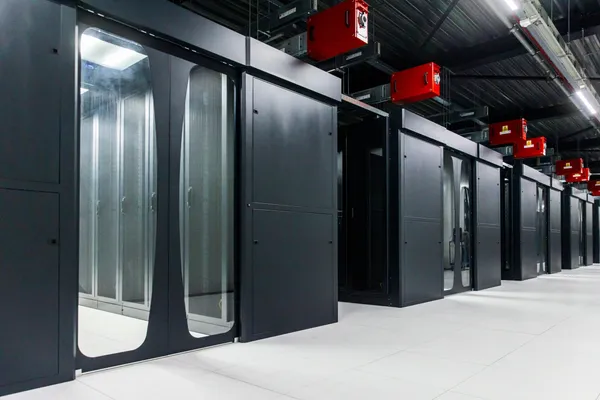What IT leaders need to know about the Digital Services Act

Knowledge blog

The Digital Services Act (DSA) went into effect earlier this year, but what does it really mean for IT organizations? Wait a minute, that’s only for online platforms with more than 45 million users, right? Not quite, as of February 17, the DSA applies to all platforms. In this article, we discuss how this legislation will impact your IT organization. Is it an unnecessary regulation or just an opportunity to emphasize your organization’s transparency?
In February of this year, the Digital Services Act (DSA) went into effect. Which applies to all European companies that ’trade digital services’. This act applies to a wide range of businesses, like online marketplaces and online content, travel, and accommodation platforms. Different rules apply to platforms that have more or less than 45 million active users. We will only discuss the regulations that apply to the latter.
The purpose of this legislation is to hold online platforms accountable for illegal content. And to protect users and consumers. These regulations boil down to a few themes: content moderation, advertising and how algorithms are used. Sounds good right? But remember that as an IT organization you will have to make changes.
Obligations under the Digital Services Act
DSA rights and obligations are commonly divided into three groups, namely parties that transmit, temporarily store or store information on demand. These groups include Internet, instant messaging, DNS, VoiP, content adaptation proxies, cloud service providers, online marketplaces, social media, search engines and app stores, among others. And the list goes on. Chances are, as an IT organization, you are one of these.
However, it is important to note that some organizations only need to follow the basic rules. That applies if you offer an online service, employ fewer than 50 people and have annual sales of no more than 10 million euros.
Impact on IT companies
The law imposes several responsibilities on IT companies even if they have less than 45 million active users. The emphasis is on transparency and accountability and honesty in the digital world. This broadly boils down to the following:
- Responsibility for online security and regulating content shared on proprietary digital platforms. IT companies must develop proactive policies to prevent abuse and illegal content, and respond quickly and effectively to user complaints and notifications.
- Protection of users’ personal data. IT organizations must comply with strict rules regarding data protection and privacy to ensure that users’ information is stored and processed securely.
- Transparency about the use of algorithms and artificial intelligence. IT companies must provide transparency about how these technologies are deployed and ensure that they are used in a way that respects users’ rights and interests.
Situation in the Netherlands
In the Netherlands, the Dutch Consumer & Market Authority (ACM) is the intended regulator of DSA legislation, but they are not currently actively enforcing it. This may tempt organizations to park compliance on the long-term schedule, but then you will have to catch up later. This September the ACM published a guideline, helping providers of online services to familiarize with the guidelines. They believe it is essential that organizations, regardless of size, comply with the set requirements in order to create a safe and transparent digital environment for users, thus contributing to a healthy digital economy. By proactively complying with the requirements of the DSA, you can not only ensure compliance, but also gain a competitive advantage by demonstrating transparency and civic engagement in the digital world.
Opportunities for IT organizations
There is room within the legislation to arrange things like content moderation as they see fit. This allows organizations that excel in transparent operations to emphasize this. Consider publishing a so-called transparency report in which an organization discloses how it handles requests, personal data and other digital information. By presenting this competently and openly, you can claim authority on the subject. In addition, you can potentially emphasize that you are socially engaged as an IT organization. The fact that you take responsibility and take a stand against online abuse can have positive consequences over time. For example, take inspiration from KPN’s campaign, which, as a telecom provider, gave attention to online shaming through a campaign with the message ’think before you share’.
Worldstream's 24/7 secure data centers
Worldstream was founded in 2006 by childhood friends with a shared passion for gaming. Worldstream grown into an international provider of IT infrastructure (IaaS). Our mission is to work with you and our partners to create the ultimate digital experience. Worldstream offers dedicated servers and colocation services from its own data centers in the Netherlands. We strive to simplify the lives of IT leaders by, among other things, providing 24/7 support support every day of the year. Our technical support staff has an average response time of just 7 minutes.
As an IaaS provider with a global backbone, Worldstream offers IT service providers and end customers ample opportunities to professionally shape a portfolio of IT services for both emerging SMBs and enterprises. These are building blocks for ambitious managed service providers. These building blocks include our own public cloud platform, named WS Cloud, that is powered by Virtuozzo’s open-source technology, a cost-effective European cloud alternative. Or opt for our private cloud solution. Another option is to use dedicated servers for your IT infrastructure. Worldstream offers this in two options, either fully customizable or as pre-assembled servers.
These diverse infrastructure solutions are perfect for integrating managed IT services. Basically, you choose colocation, cloud, or dedicated servers for your IT infrastructure. Then you complement it with additional services. Consider a service such as a secure cloud on-ramp. This is a connection from the data center to well-known U.S. public cloud providers (such as Microsoft Azure, AWS and Google Cloud). Finally you’ll want to secure your data, which is possible with block storage, file storage, or object storage.
You might also like:
- Power grid congestion in Amsterdam: Rotterdam emerges as colocation hub.
- The difference between bare metal cloud and dedicated servers.
- The benefits of integrating managed services with data center colocation.
Have a question for the editor of this article? You can reach us here.

Latest blogs
The Ultimate Gaming Latency Guide: How to Eliminate Lag and Maximize FPS
Knowledge blog

Growing smarter with less maintenance

Knowledge blog

Worldstream and Nokia Join Forces for Next-Gen DDoS Protection

News

Worldstream unveils new positioning and offers customers more control over their digital infrastructure

News

5th Gen AMD EPYC 9355P – Now Live at Worldstream

News

Nokia strengthens Worldstream’s hosting security with advanced DDoS Protection in the Netherlands.

News
